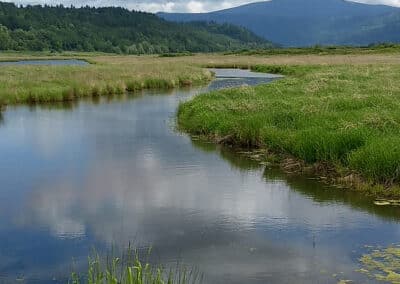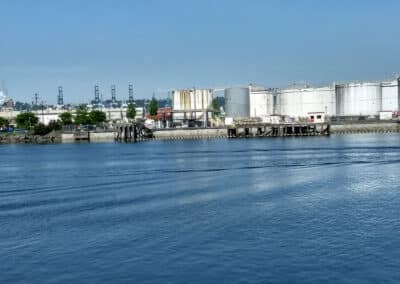EPA Must Act on Toxics, Court Orders
Washington State’s Dept. of Ecology Failed, Now EPA Must
A federal court ordered the U.S. Environmental Protection Agency (EPA) last night to take the first step towards updating Washington’s water quality standards for 17 key toxic pollutants known to harm endangered salmon, steelhead, and the Southern Resident killer whales that depend upon them.
The order is the result of federal district court Judge Marcia J. Pechman’s earlier finding that EPA is compelled to address the Washington Department of Ecology’s long-standing failure to protect aquatic species from toxic pollution after having “unreasonably abandoned its role for years.”
The lawsuit, filed in federal district court in 2020 by Northwest Environmental Advocates (NWEA), challenged EPA’s 2017 denial of a formal petition that the organization submitted to EPA in 2013. The NWEA petition asked EPA to update Washington’s nearly three decades-old water quality standards to protect aquatic life—such as Chinook salmon—from toxics.
In the revised court order signed last night, EPA will move quickly to grant NWEA’s petition and take federal actions on Washington’s water quality standards for nine toxic pollutants: arsenic, cadmium, copper, cyanide, mercury, selenium, nickel, acrolein, and aluminum. Within three years, the federal agency will take action on eight additional pollutants: chromium III, DDT and its metabolites, endosulfan, endrin, tributyltin, zinc, lead, and nonylphenol.
In justifying its denial of the NWEA petition, EPA relied on its assumption that Ecology would eventually take care of the problem. But in December last year, Judge Pechman said EPA’s reliance was not justified because “Washington had abdicated its duties.”
“We are pleased that, after a decade and two lawsuits, we have successfully forced EPA to take responsibility for a key aspect of regulating toxic pollution in Washington State,” said Nina Bell, NWEA executive director. “These water quality standards are the foundation for the entire Clean Water Act regulatory program that is supposed to protect threatened and endangered species such as salmon and steelhead.”
“EPA simply had no leg to stand on,” said Lia Comerford, staff attorney with Earthrise Law Center. “The Clean Water Act requires that Washington State have water quality standards to protect fish and wildlife from toxics and neither the EPA nor the Washington Department of Ecology has chosen to meet that requirement.”
NWEA is represented in this case by Lia Comerford of the Earthrise Law Center at Lewis & Clark Law School (Portland) and Bryan Telegin of Bricklin & Newman (Seattle).

Court Wins for Puget Sound & Columbia River

Stopping Tacoma from Harming Puget Sound Chinook Salmon

